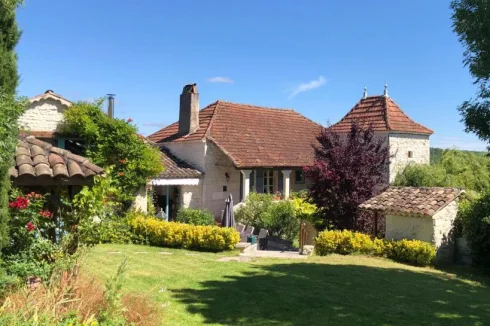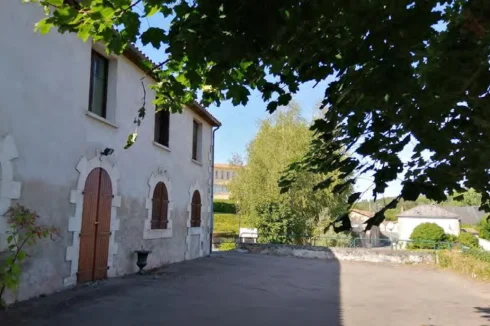French Health and Social Security System
Friday 15 October 2010
The French health and social security system is a spider's web of schemes and agencies, but you need to understand it if you are proposing to live in France.
The starting point for trying to get to grips with the system is to appreciate that the current structure is the legacy of 19th Century mutual aid societies that provided social care for different groups of workers.
Although there has since been a substantial rationalisation of the system, it still operates through many different statutory insurance schemes, administered by several different agencies and mutual organisations.
Surprising as it may seem, there has not been the creation of a single Beveridge style welfare state as occurred in the UK and many other countries, although the different insurance funds that operate in France do so on a very similar basis, and within a national legislative framework.
Ultimately, all these agencies are regulated and bankrolled by the government, but a façade of ‘partnership’ exists, based on the historic mutual basis of these schemes.
Social Security Insurance Funds
There are now two main insurance schemes in existence, together with a number of special schemes for particular groups of employees and business owners. There is also a separate insurance fund for unemployment benefits.
- i. General Scheme - The general scheme (Régime Général) is the main branch of the social security system covering 80% of the population. When it was set up after the war it was intended that it should cover the whole population, but those in schemes for self-employed did not wish to amalgamate, as a result of which they retained their own schemes.
- ii. Self-Employed - Self-employed individuals and their families are insured through the Régime social des indépendants (RSI). This fund is the fairly recent amalgamation of a number of separate funds, which now operate under a single umbrella organisation. The amalgamation of these funds is still causing a huge administrative nightmare and the operation of the RSI is considered to be far from satisfactory.
- iii. Specialist Employment Groups - There are also insurance schemes for agricultural businesses and workers (MSA), civil servants, railway workers and certain other large employment groups.
iv. Unemployment Insurance - The insurance fund for unemployment benefits is financed by contributions from employers and employees and managed by a joint body of their representatives. The organisation charged with running the fund is called Pôle Emploi (itself a recent fusion of two bodies called ANPE and Assédic). It provides job search and unemployment benefits covering all salaried employees, but not the self-employed, who need to take out private cover, although there is no obligation to do so.You can read more at Unemployment Benefit in France.
French Social Security Contributions
Financing of the whole system is mainly through social security contributions, unlike in the UK where it is funded primarily through income tax.
That is why social security contributions for the employed and business owners are high in France, but also why the incidence of income tax is comparatively benign.
As a general rule there is no single 'national insurance contribution'. Most of those who are employed or self-employed pay separate social security contributions for each type of social security cover, e.g. sickness/maternity/invalidity/death benefits, occupational injury/disease benefits, family benefits, retirement pensions. There are different percentage rates for each type of cover.
The exception to this rule relates to those with auto-entrepreneur self-employed business status, who pay a single percentage rate for their social security cover.
Those of you who retire to France having reached retirement age will only pay the 'social charges' CSG/CRDS on your investment and rental income. In theory, inactive early retirees also pay these social charges on their pension income, but the collection procedures are such that this does not always occur, and those on government pensions are also exempt.
Collection Bodies
There are a number of different agencies involved in the collection of social security contributions.
The main body responsible is called Ursaff - Unions de Recouvrement des cotisations de Sécurité Sociale et d’Allocations Familiales.
However, in this function they do not have a monopoly; their role is limited to collection of the social charges CSG/CRDS and the contributions towards family benefits, called allocations familiales. Ursaff are also gradually taking over the function of collecting unemployment contributions from Pôle Emploi .
If you are self-employed, then the RSI or MSA will deal with your other social security contributions, except for those with auto-entrepreneur business status, who make a single payment to Ursaff!
In addition, if you are a self-employed person in one of the professions libérales, your pension fund will be responsible for the collection of your pension contributions, except once again for auto-entrepreneurs, who pay to Ursaff.
The social charges CSG/CRDS on investment and rental income are collected by the French tax authority, the Impôts.
French Social Security Benefits
The general social security scheme is composed of four main branches covering :
- i. Sickness/Maternity/Invalidity/Death Benefits
- ii. Occupational Injury/Disease Benefits
- iii. Family Benefits
- iv. Retirement Pensions
The branches operated by other schemes are aligned to the general scheme and family benefits available under the general scheme are universally available.
If you are an employee or self-employed in France you have full access to the health and social security system, in the same way as a French national.
If you relocate to France having reached state retirement age you will not be formally affiliated to the French social security system. However, those from within the EU receive their health cover from their home country through an E121 (now 'S1') certificate of entitlement. Administrative responsibility for your healthcare is undertaken by the local health authorities, the CPAMs.
Likewise, inactive early retirees on E106 (S1) forms will obtain temporary health cover from their home country, so will not be formally affiilated to the system. Once again, administrative responsibility is carried out in France through the CPAMs.
Those who are not eligible for health cover under the social security system obtain it through the CMU (Couverture maladie universelle), although inactive early retired expats from the EU are only allowed access to the CMU on specific grounds, or 5 years residence.
Whatever your circumstances, once you have completed five years legal residence in France, then you are entitled to access all health and social security benefits, in the same manner as a French national. There are also other benefits to which you are entitled before this date, such as school grants.
You can read more about your social security rights in France in an article we published last year at Your Social Security Rights in France.
Delivery Agencies
The agencies who administer the social security and health funds and benefits are known as ‘Caisses’.
Thus, for example, as we state above, if you are retired or an employee you will have your health insurance provided through the local health authorities, called Caisses Primaires d’Assurance Maladie (CPAMs).
The organisation responsible for the administration and payment of family support payments and school grants is the Caisses d’allocations familiales (CAF).
The umbrella organisation responsible for pension contributions and payments from the general population is the Caisse nationale d’assurance vieillesse (CNAV), although there are seperate pension funds for different professions.
Social Assistance
There are also programmes of social assistance that are non-contributory and operate outside the above insurance schemes. These services and benefits are operated through the departmental councils.
The benefits and services provided by the councils include certain benefits to disabled persons, and the minimum income support programme, called Revenu de Solidarité Active (RSA).
Guides to France
News Articles
Thank you for showing an interest in our News section.
Our News section is no longer being published although our catalogue of articles remains in place.
If you found our News useful, please have a look at France Insider, our subscription based News service with in-depth analysis, or our authoritative Guides to France.
If you require advice and assistance with the purchase of French property and moving to France, then take a look at the France Insider Property Clinic.





